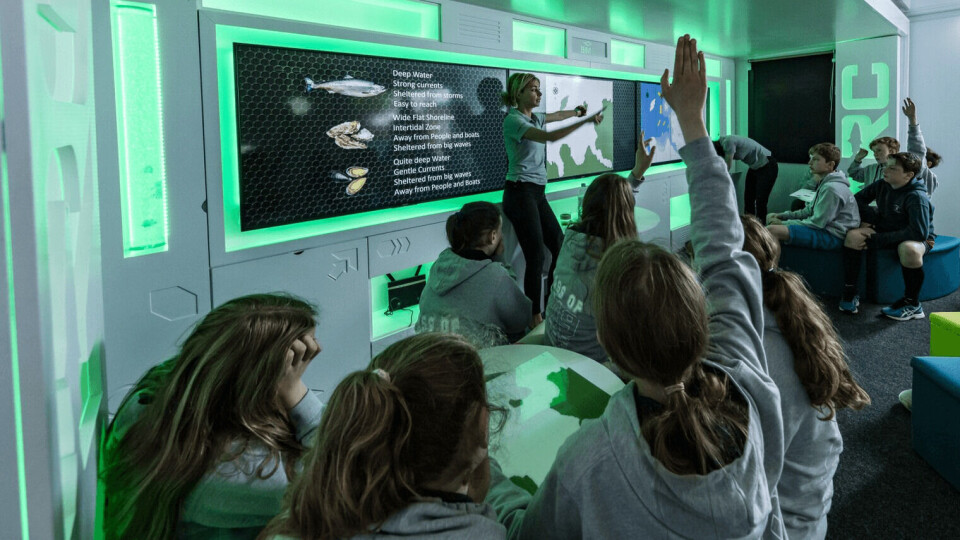
Irish schools' aquaculture education scheme expanded
Ireland’s interactive Aquaculture Remote Classroom (ARC) programme is to be expanded from primary to second level schools (for pupils aged 12 onwards) from September this year.
The programme will focus on career opportunities in the aquaculture sector and building greater awareness among second level students of the breadth of career options available.
Skills and qualifications needed for diverse roles including commercial diving, science, sales and marketing will be brought to life by profile interviews with some of the women and men who work in Ireland’s seafood sector.

Bigger numbers
Ireland’s minister for agriculture, food and the marine, Charlie McConalogue, today welcomed the ARC programme expansion when he spoke with a group of students from schools in County Donegal via a live Zoom broadcast.
“I am delighted that this programme is being expanded to include students at second level and with a focus on careers in the seafood sector,” said McConalogue.
“Its online format also means it will get to audiences more swiftly and in bigger numbers. Attracting skilled and talented young people to work in Ireland’s seafood sector is central to its continued development. My hope is that the new programme can help to inspire students considering their career options when they leave school and to realise the breadth of opportunities that exist within the sector.”

Immersive technologies
The interactive mobile classroom is part of the Farmed in the EU campaign and was launched three years ago in 2018 by Ireland’s seafood development agency Bord Iascaigh Mhara (BIM). The programme was originally centred around an interactive, lorry-based classroom that visited different schools, but in the last 12 months the ARC has been adapted and delivered entirely online to ensure teachers and students have been continuously able to access the resource.
The ARC is supported by the European Maritime and Fisheries Fund (EMFF) and was initially developed to help younger audiences learn about aquaculture in a fun and interactive way using immersive technologies including VR headsets and augmented reality. The ARC programme also covers modules on the socio-economic and nutritional benefits of aquaculture.
BIM chief executive Jim O’Toole said: “The seafood sector provides a vital source of jobs and economic activity for coastal communities across Ireland. The continued success and development of the sector is contingent on being able to attract young talent from across different disciplines so that the sector continues to prosper and thrive.”






















































